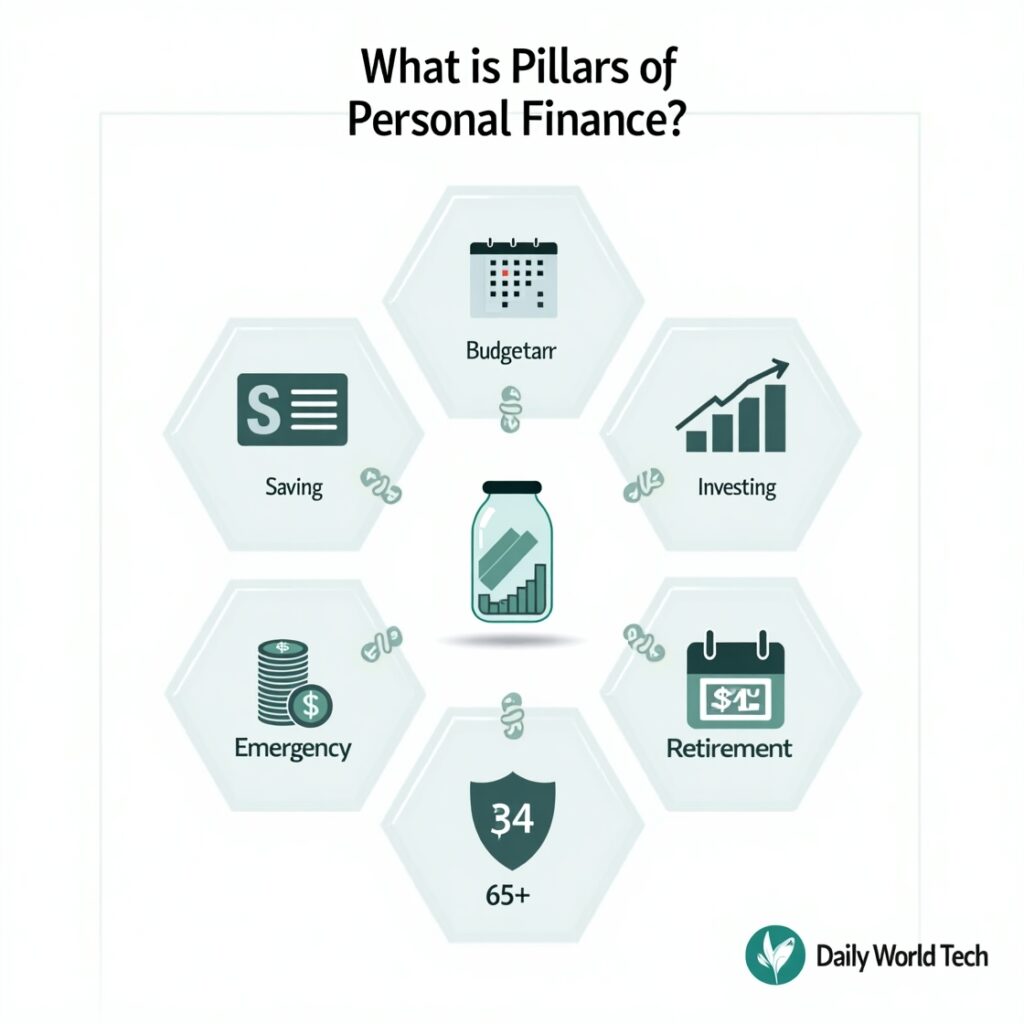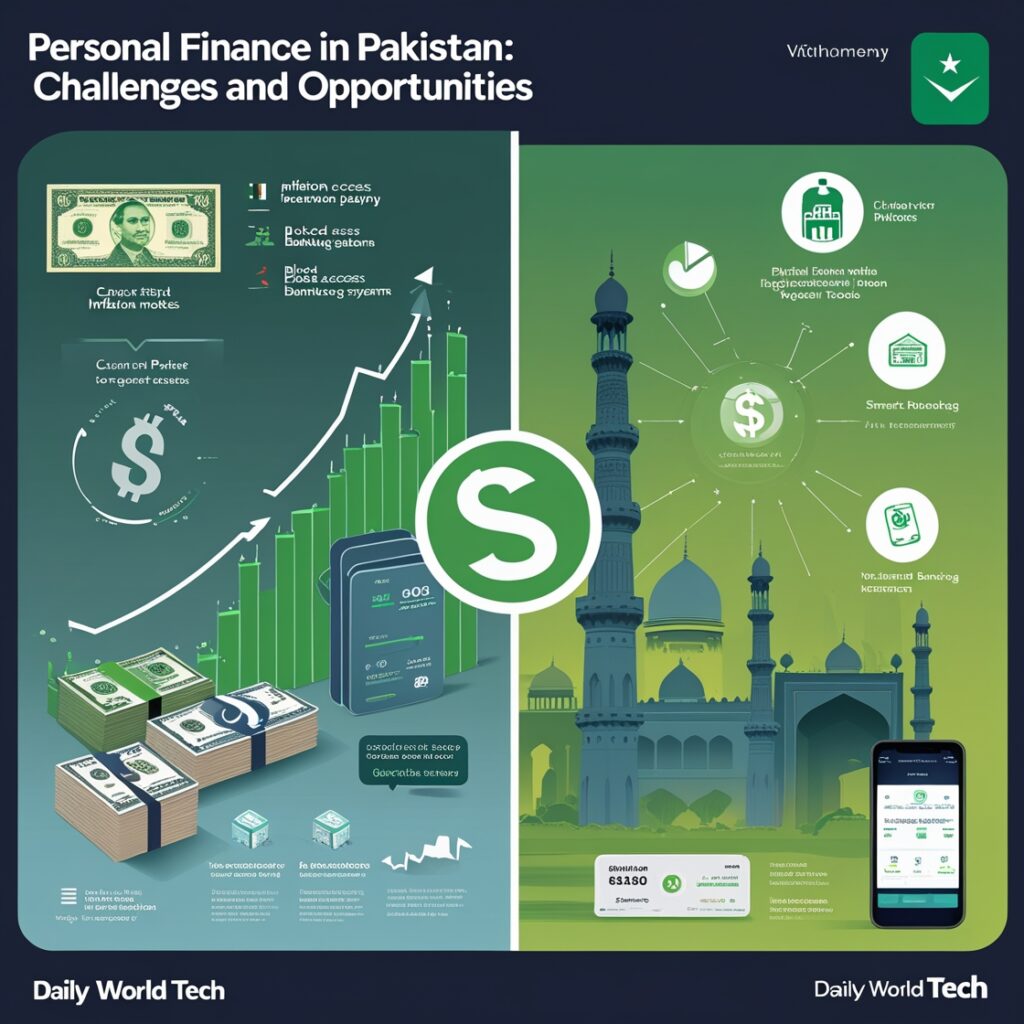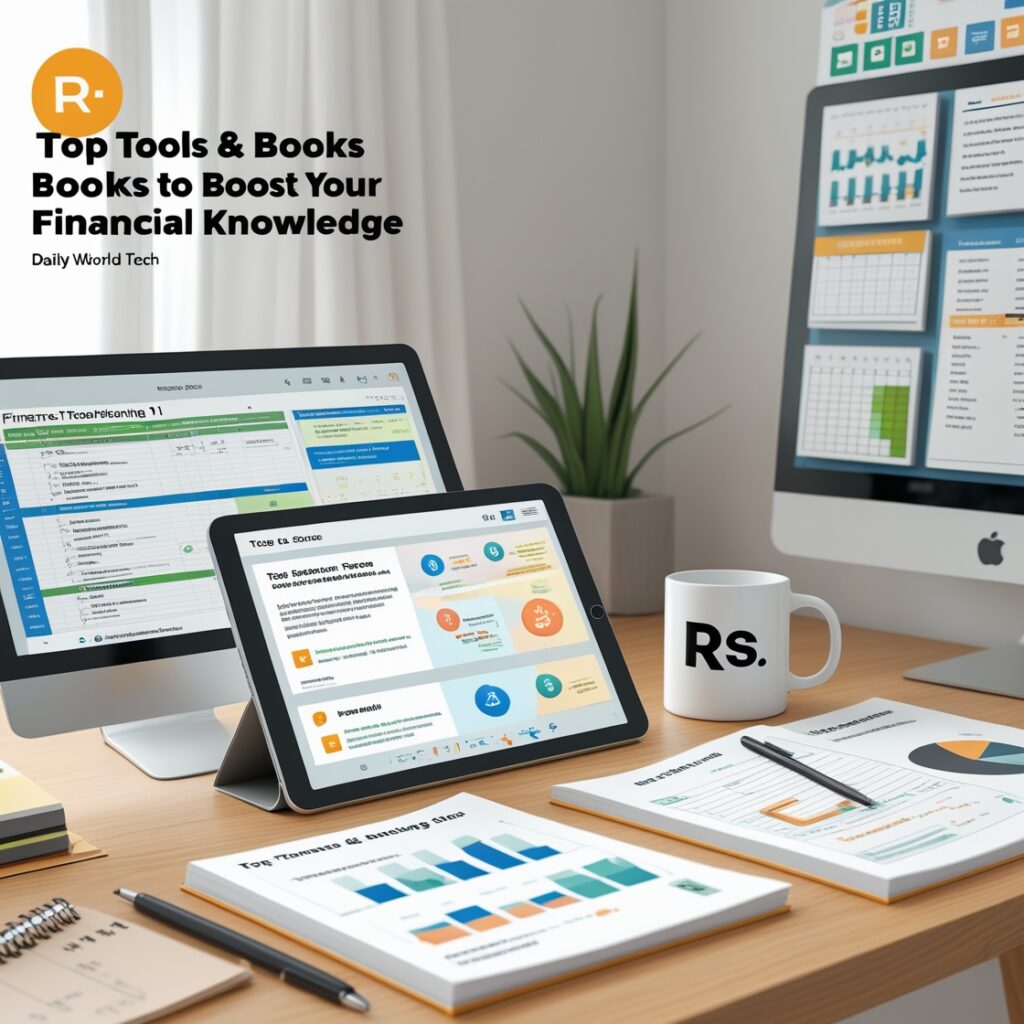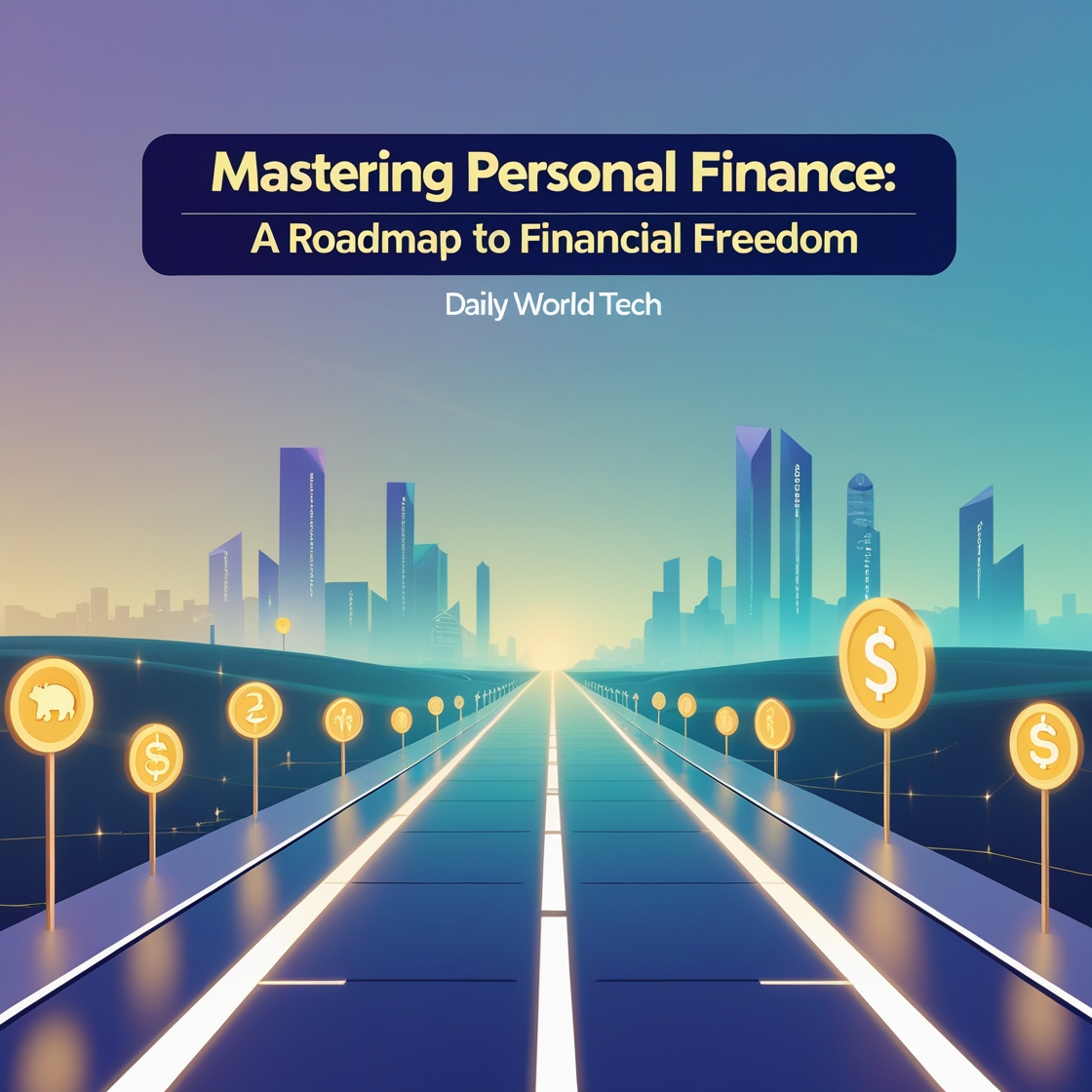With financial stability affecting our lives so much, everyone should consider personal finance a necessity these days. Since personal finance covers everything from paying bills to managing debts and investing, it empowers you to act wisely and enjoy more safety. On this blog, personal finance is discussed in detail, as well as its role in Pakistan and with simple examples, useful resources, and different types of personal finance strategies that anyone should be aware of.

What is the Meaning of Personal Finance?
Personal finance involves the way somebody or a family group manages their income by budgeting, saving money, investing, and making plans for their later years. It deals with decisions about today’s expenses as well as planning for the future.
Since personal finance is meant for individuals, it is adjusted to meet their personal objectives. It considers your earnings, outgoings, what you want to save for, and your degree of risk to give you advice that fits your way of life and goals.
The Value of Personal Finance
Personal finance is valuable since it helps you lead a comfortable life now and save for your future. There are a number of important things about personal finance that you should understand:
- Proper handling of your finances allows you to have enough for emergencies and unexpected costs.
- Whether you wish to own a house, begin a new business, or go on vacation, financial planning helps you accomplish those goals.
- It helps you deal with existing debt in an effective way so you do not feel overwhelmed.
- Money problems expose people to considerable stress. By using personal finance, people can manage their finances well and feel more relaxed.

How Finance Works in Pakistan
Although personal finance is gaining popularly in Pakistan, it is not yet known by a large section of the population. A lot of people earn their wages as they come and do not save for upcoming expenses.
Main Challenges Faced by Pakistan
- People in this country do not usually know the basics of personal finances.
- Banking and Financial Services are Out of Reach: In rural places, accessing proper banking is seldom possible.
- Because most cultures treat financial planning as less than straightforward, many individuals do not seek out help or extra knowledge.
- A time of high inflation makes it tough for people to budget and set aside money.
Positive Trends
- Fintech is developing rapidly, so that financial products can now be reached easily online or by app.
- More and more, institutions and key individuals are providing workshops on financial literacy.

There are Different Types of Personal Finance
Learning about the different aspects of personal finance enables people to make a good financial plan.
1. Income Management
Your income is what you should focus on first. Tracking your income from a job, business, or as a freelancer is the key to any financial plan you use.
2. Budgeting
A good budget can guide you in giving the right amount to every area of your spending. The usual practice is the 50/30/20 rule, which means devoting half to necessities, one-third to discretionary spending, and 20 percent to financial savings or investments.
3. Saving
Personal finance greatly relies on it. You should build up your emergency fund before you start saving for retirement or your children’s education.
4. Investing
Putting money into investments helps it grow as time passes. Some usual investment options are:
- One example is the Stock Market
- Funds that Investors Pool Money Into
- The field of Real Estate
- Gold
- Government Bonds
5. Insurance
Being protected against sudden financial losses is very important. The purpose of these types of insurance is to lessen risks.
6. Retirement Planning
Planning ahead ensures you can maintain your lifestyle post-retirement. Pension schemes, retirement accounts, and long-term investments are key components.
7. Tax Planning
Efficient tax planning allows you to legally reduce your tax liability and optimize your savings.
Personal Finance Example
Let’s take an example to understand how personal finance works in real life.
Scenario: A 30-year-old salaried individual in Lahore earning PKR 100,000/month.
- Budgeting:
- Needs (rent, groceries, bills): PKR 50,000
- Wants (dining, entertainment): PKR 20,000
- Savings/Investments: PKR 30,000
- Financial Goals:
- Emergency Fund: PKR 300,000 in 10 months
- Buy a car: PKR 1,200,000 in 3 years
- Investment Plan:
- Mutual funds for medium-term goals
- Real estate plot for long-term returns
- Life and health insurance coverage
This example demonstrates how clear planning and discipline can lead to financial growth and stability.

Personal Finance Book Recommendations
Books are an excellent resource to build your financial knowledge. Some top personal finance books include:
- “Rich Dad Poor Dad” by Robert Kiyosaki
Focuses on the mindset differences between the rich and poor, emphasizing investment and asset-building. - “The Total Money Makeover” by Dave Ramsey
Offers a practical, step-by-step plan for getting out of debt and building wealth. - “Your Money or Your Life” by Vicki Robin & Joe Dominguez
Encourages readers to evaluate the value of their time and money, pushing for intentional spending. - “The Intelligent Investor” by Benjamin Graham
A more advanced read, perfect for those looking to understand long-term investing.
Personal Finance Course Options
If you prefer structured learning, a personal finance course can offer practical insights and guided instruction. Here are some options:
- Coursera: Offers courses like “Financial Planning for Young Adults” (University of Illinois).
- edX: “Personal Finance” by Purdue University – covers everything from credit cards to retirement.
- Udemy: Various courses on budgeting, investing, and debt management for beginners.
- Pakistan-Specific: Some local universities and fintech apps (like Finja, SadaPay) now offer webinars or courses tailored to the Pakistani market.
Personal Finance Lab: A New Learning Trend
A personal finance lab gives people a chance to practice handling money matters in a real-world way using pretend information. Labs such as these offer lessons on stock trading and budgeting and help both students and young professionals greatly.
Although there aren’t many of these facilities in Pakistan at the moment, this idea is gaining popularity and is expected to spread in the near future.
Tricks to Better Control Your Finances
All over the world, including Pakistan, these simplistic tips can help you manage your finances well:
- Monitor Your Spending: You can use apps or work with spreadsheets to see how you spend your money.
- Automate your saving process by planning fixed amounts to be taken out every month.
- Examine your expenses and avoid getting things you don’t really need.
- Avoid getting loans with big interest rates or piling up credit card debt.
- Start investing as early and regularly as possible, because it will be very beneficial thanks to compounding.
- Plans for finances should be looked at and changed if needed. It’s a good idea to check them every year or whenever there are changes in your situation.
- Follow current developments in finance to access new trends, resources, and available opportunities.
Final Thoughts
Managing finances personally has more to do with living happily and freely, not only working with numbers. Considering how frequently the economy changes and uncertainties rise, taking responsibility for your finances gives you a great sense of power.
No matter if you are new to investing, have made some financial errors, or want to build for the future, this blog helps you achieve success. In places like Pakistan, where people are not very familiar with personal finance, knowledge about this area can develop and make the community more secure.
Therefore, it’s best to begin working on this now. You can choose to read a book about personal finance, take a class, or just make a list of all the things you spend each month. Every small step brings you closer to financial independence. Read more information about Personal Finance…














